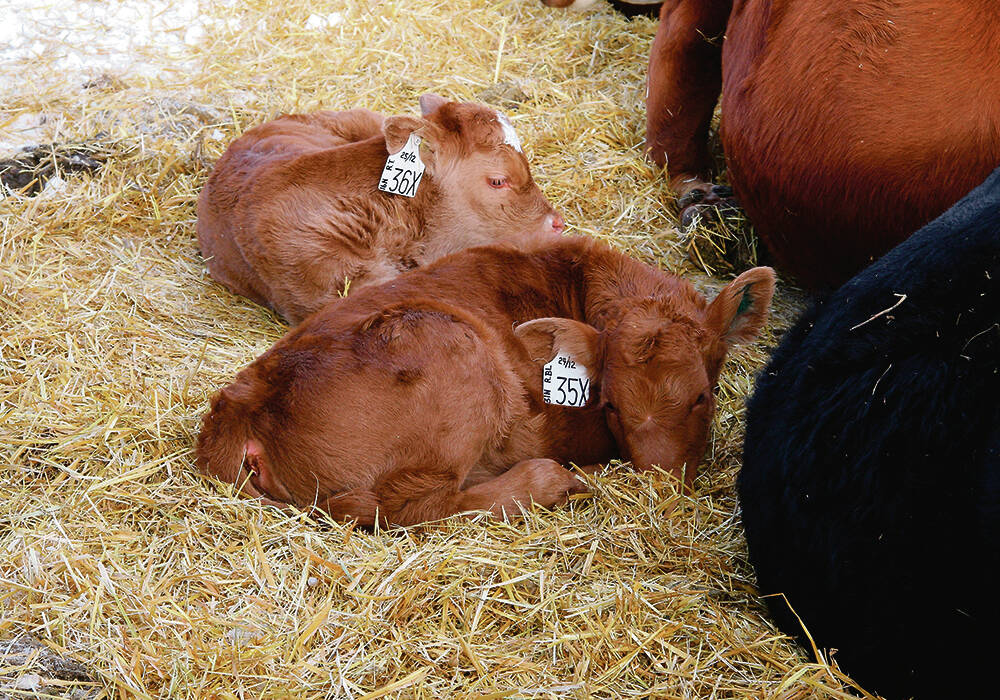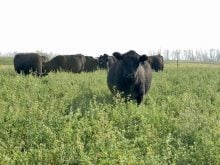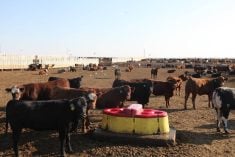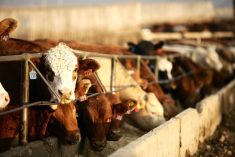It’s a pretty disheartening finding: Nearly two-thirds of residents of Lethbridge — located in Feedlot Alley — oppose the use of growth hormones in cattle, according to a recent survey.

“I would suspect that a lot of people don’t understand,” said Roland Cailliau, a cow-calf producer from Valleyview. “They don’t read and they don’t understand that hormones are natural in people, animals, food, and plants. They just don’t know.”
Natural and synthetic hormones have been used in beef production for more than 50 years and the sector has devoted considerable effort to telling the public that they have been proven to be safe. Yet consumers still worry.
The survey was conducted in February by Lethbridge College students under the auspices of the school’s Citizen Society Research Lab. They asked nearly 1,300 residents of the city, which has a population of just 100,000, several questions about the sustainability of several agricultural practices. Only 37 per cent said hormone use in beef cattle was acceptable.
Read Also

Biosecurity during calving: What’s your farm’s risk?
Cow-calf producers in Western Canada should have a well-designed plan for winter confinement period to reduce disease risks to herd.
Consumer resistance is, in an indirect way, why Cailliau doesn’t use hormones.
“We raise our cattle without hormones and that allows the people who buy them to either use them or not use them,” said the producer, a past vice-chair of Alberta Beef Producers. “It actually increases our marketplace. If I put in hormones, the only people who will buy them are those who are willing to use (hormones).”
- Read more: Hormone-free beef pros and cons
But his choice is strictly because of marketing.
“I don’t think there is anything wrong with the program of hormones in animals. It just gives us access to more purchasers,” said Cailliau, who hasn’t used hormone implants for about two decades.
Cam McLerie, a cow-calf producer from near Spruce View, has also looked at the economics of hormone use — and that’s why he uses them.
“We invest $1 and in that dollar, we can get anywhere from 10 to 25 pounds,” said McLerie, who farms with his wife and two children. “It comes down to dollars and cents. Where else can you invest a dollar and get $10 back? That’s why we do it. And the only thing we do is our steers. We keep all our replacement heifers and never implant the heifer.”
Consumers are misinformed about hormones and there is no safety concern, he said.
“Women who are on birth control are taking more hormones than they do if they eat a steak from an animal that has been on implants. There is other food that has more hormones in it, without adding anything. It’s misinformation.”
McLerie said he wishes more people would understand it, so that they would be more open to eating beef that uses hormones.
“If you don’t implant, it costs you more days on feed. You create more greenhouse gases by having cattle on feed longer. There’s an offset.”
Producers need to take the opportunity to talk to consumers, he said. His wife explained the use of hormones in beef to a friend, who made the switch.
As well, beef that is grown with implants can usually be sold for a cheaper price, McLerie added.
“In our industry, it’s getting tougher and tougher. It’s still a safe product, and it’s safe for human consumption. There’s no research to show it’s bad. It’s just driven by the consumer who says they don’t want it.”
Cailliau agrees that the beef sector needs to continue to talk to the public about hormone use and look for ways to get its message across to more people.
“To me, it’s a matter of education,” he said. “I think the protocols that are in place now are quite good.”
The Lethbridge College survey, which also polled city residents about issues such as animal welfare and manure spreading, can be found at www.lethbridgecollege.ca (search for ‘environmentally sustainable agriculture’).
















